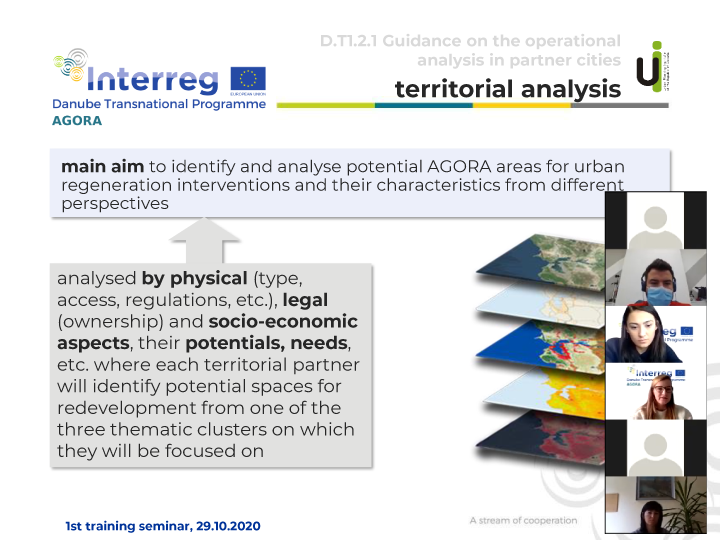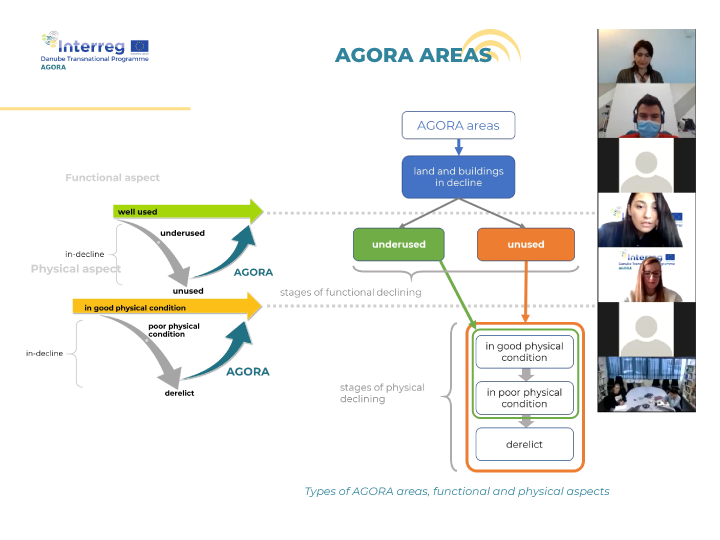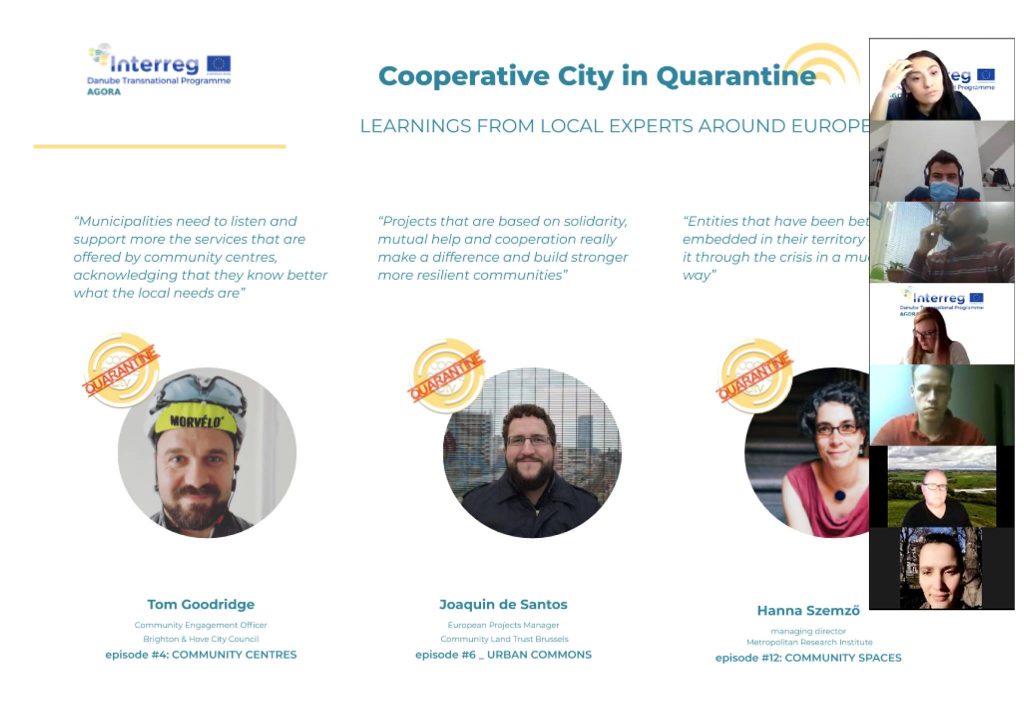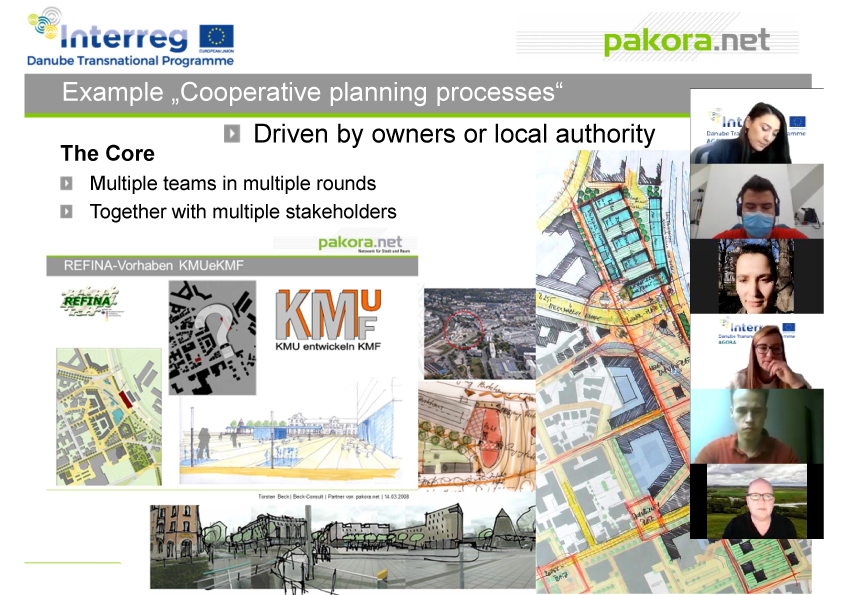Sharing a first insight into the activities developed within the AGORA project: TRAINING SEMINARS. AGORA’s first Training Seminar took place on the 29th of October via zoom. The training was devoted to the presentation of the project’s areas for urban regeneration, and thematic clusters, in addition to the guidelines for developing the state of the art analysis of partner cities.
“AGORA areas and thematic clusters with best cases” presented by Serin Geambazu (Urbasofia)
Opened the seminar, giving terms & definitions to territorial partners. These definitions are going to be used within the project implementation in order to have a common AGORA dictionary and background. Here, the three thematic clusters and the methodologies with which they have been analyzed were also presented. These thematic clusters are: Large-scale post-industrial land; Unused/ Underused buildings; Unused/ Underused areas as public spaces potential

Operational analysis, best cases and stakeholders “presented by Barbara Mušič (Urbanistični inštitut Republike Slovenije) Introduced guidelines, objectives, and the structure of the project’s operational analysis. The guidance will be shared with all the partners and will accompany all the cities throughout their process of regeneration agendas’ implementation. Tools, policy instruments, master plan instruments, were provided to help each partner in their own territorial analysis.
“AGORA approach to stakeholders’ involvement” presented by Torsten Beck (PAKORA)
Explained to partner cities the importance to have a good connection between formal and informal stakeholders as well as the relevance of timing; stakeholders have to be involved from the beginning of the project but not too early in order to have already a methodology for their involvement and clear ideas about the objectives of the project.

AGORA and Covid – Community spaces in times of pandemic “presented by Jorge Mosquera ( Eutropian )
Here EUTROPIAN shared some learnings from its weekly webinar during the quarantine, where its team was discussing with international guests about community spaces and centers and how to better build and exploit them during and after this pandemic situation. Furthermore, some examples of policies and initiatives started during quarantine, especially in Italian areas, were shown highlighting the use of an open approach to re-use and adaptation through new and innovative tools to cope with the crisis.

“AGORA platform – requirements and functionalities” presented by Liviu Purtator (CLUJ-NAPOCA Municipality)
A final part of the seminar was dedicated to the policy learning platform and a discussion on how it will be built. Lead Partner Cluj-Napoca Municipality plans to use the existing Cluj-Napoca platform “Refill” (www.clujrefill.ro) to develop the new AGORA platform. The aim is to create a collaborative platform that can respond to the necessities of different target groups (citizens, municipalities, private companies). To do so, every partner’s feedback will be collected through a questionnaire.

